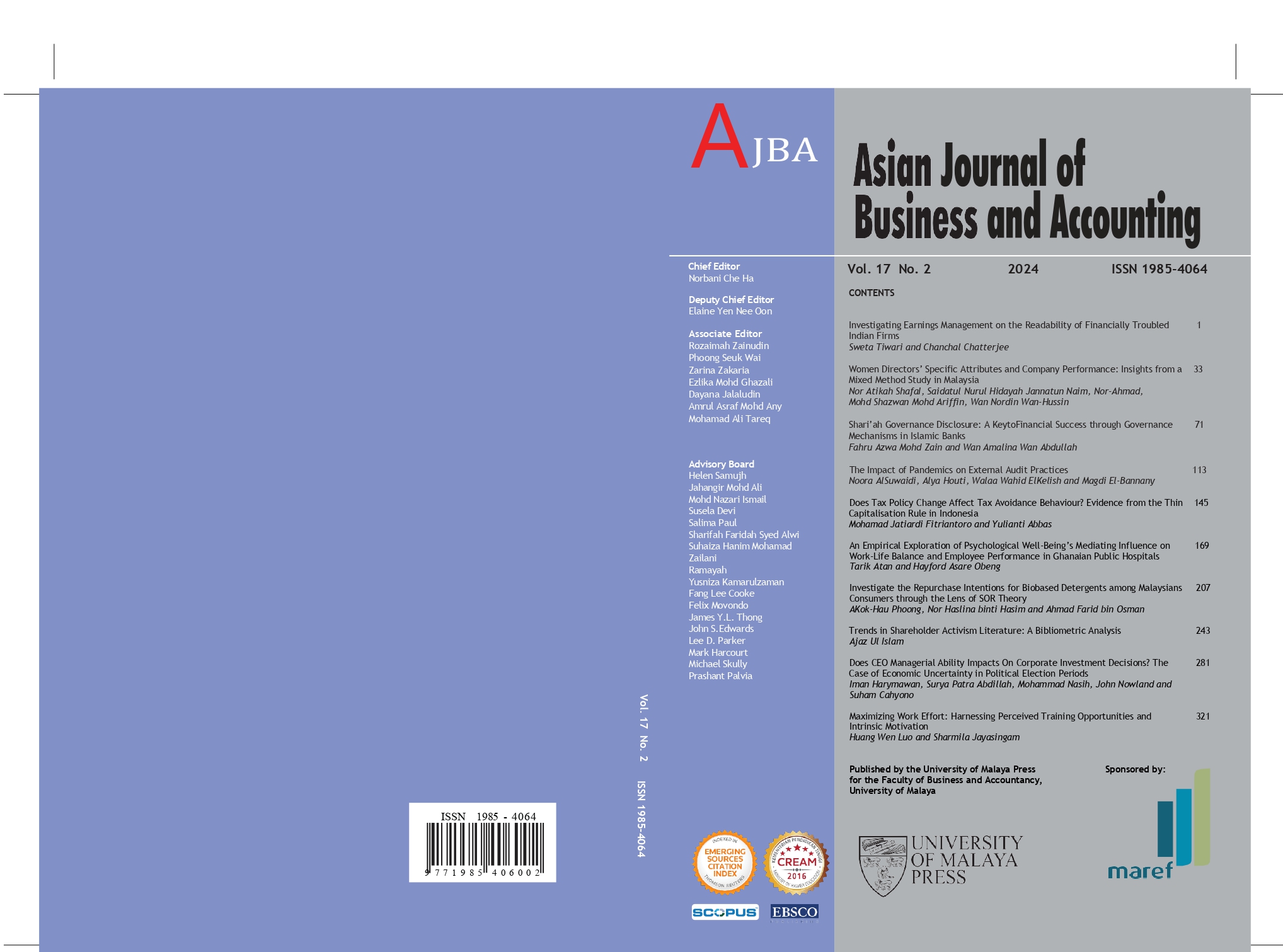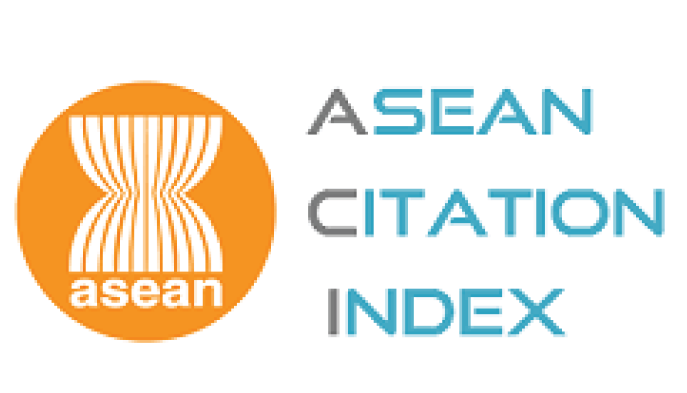Does Tax Policy Change Affect Tax Avoidance Behaviour? Evidence from the Thin Capitalisation Rule in Indonesia
DOI:
https://doi.org/10.22452/ajba.vol17no2.4Keywords:
conforming tax avoidance, non-conforming tax avoidance, thin capitalisationAbstract
Manuscript type: Research paper
Research aims: This research endeavours to assess the extent to which corporations modify their tax avoidance strategies following the initiation of a new anti-tax avoidance policy. Concentrating on the enforcement of the thin capitalisation rule in Indonesia, this study scrutinises whether the introduction of the new policy induces changes in firms’ tax avoidance practice, measured by conforming and nonconforming tax avoidance.
Design/Methodology/Approach: Drawing on financial data from publicly traded companies in Indonesia, spanning the years 2012-2019, a Difference-in-Differences (DID) method is employed to disentangle the impact of thin capitalisation rule on corporate tax avoidance behaviour from extraneous factors. In setting up the DID method, we separate the study period into pre- and post- implementation of thin capitalization rule. We also separate our sample into high-debt firms and lower-debt firms. We apply a two-way fixed effect and the Driscol-Kraay standard errors to ensure the robustness of our analysis.
Research findings: Our findings reveal that the implementation of the new tax rule, which limits company’s debt, is associated with a decrease in conforming tax avoidance. Notably, multinational corporations exhibit a decrease in conforming tax avoidance but simultaneously exhibit an increase in nonconforming tax avoidance. These outcomes suggest that the introduction of a novel tax rule designed to curtail tax avoidance may lead to an upswing in overall tax avoidance behaviour and firms may adjust to a more aggressive approach. Our findings align with prior studies suggesting that companies consistently adapt and tailor their strategies to prevailing conditions to achieve an optimal level of tax avoidance.
Research limitation/Implications: As governments in emerging economies endeavour to promulgate new tax policies aimed at curtailing tax avoidance practices, our study underscores the potential futility of singular policy focus, as corporations may adeptly adjust their approaches to attain an optimal level of tax avoidance.
Originality: The introduction of the thin capitalisation rule in Indonesia provides a unique opportunity to implement quasi experimental method to test whether a stricter anti-avoidance rule effectively curtails firms' aggressive tax avoidance behaviour. Additionally, we utilise the two distinct types of tax avoidance, conforming and nonconforming tax avoidance. This nuanced classification enables a more detailed analysis of the shifts in tax avoidance behaviour following changes in tax policy








